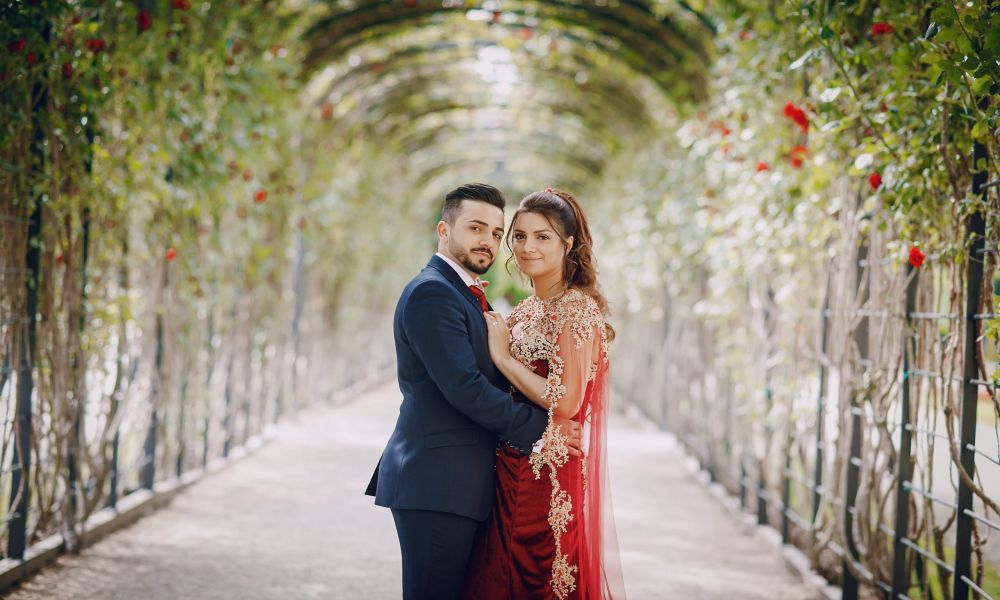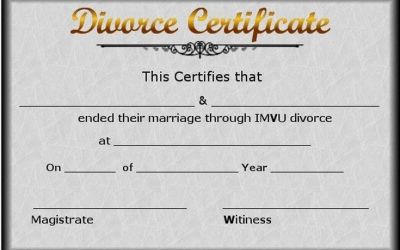
Latest 2025 Sharia Marriage Rules in the UAE: What You Need to Know
Table of Contents ▼
One missing document can postpone your UAE Islamic wedding by months.
Missing a single document requirement or overlooking a recent law change can turn your dream wedding into a bureaucratic nightmare. The UAE updated several key sharia marriage rules requirements in 2025, and many couples discover these changes only when they’re already deep into the application process.
Understanding the current sharia marriage rules is essential for couples looking to marry according to Islamic principles in the UAE. These recent updates affect everything from documentation requirements to processing timelines, making it crucial to have accurate, up-to-date information.
Understanding Sharia Marriage Rules in the UAE
The UAE operates under a dual legal system where Islamic sharia marriage rules governs personal status matters for Muslim citizens and residents. This means that marriages, divorces, inheritance, and child custody cases for Muslims are handled according to Islamic jurisprudence rather than civil law.
When you choose to marry under Sharia law in the UAE, you’re entering into a contract that carries both religious significance and legal weight. The process involves specific requirements, documentation, and procedures that must be followed to ensure your marriage is recognized both religiously and legally.
Key Requirements for Sharia Marriage in 2025

Essential Documents You’ll Need
Getting married under UAE sharia marriage rules requires careful preparation of your paperwork. Both parties must provide:
For UAE Nationals:
- Original Emirates ID
- Family book (Khulasat al-Qaid)
- Medical fitness certificate from an approved healthcare facility
- Pre-marital screening certificate
- No-objection certificate from the family court (if previously married)
For Expat Muslims:
- Valid passport with UAE residence visa
- Attested birth certificate
- Certificate of no impediment to marriage from home country
- Medical fitness certificate
- Pre-marital counseling certificate
- Salary certificate or employment letter
Age and Consent Requirements
The UAE has specific age requirements that align with Islamic principles while ensuring legal protection. Both parties must be at least 18 years old, though exceptions may be granted through court approval in specific circumstances. Mental capacity and free consent are mandatory requirements that cannot be waived.
Parental consent plays a different role depending on your circumstances. For first-time brides under 25, parental consent or guardian approval is typically required. The law recognizes the importance of family involvement while protecting individual rights.
Recent Updates to UAE Sharia Marriage Laws
2025 Legislative Changes
The UAE continues to modernize its family laws while maintaining Islamic principles. Recent updates include streamlined documentation processes, enhanced protection for both spouses, and clearer guidelines for interfaith considerations.
One significant change involves the pre-marital counseling requirement, which has been expanded to cover financial planning, conflict resolution, and family planning discussions. This reflects the UAE’s commitment to reducing divorce rates and strengthening family units.
Digital Integration and Processing
The UAE has embraced technology in processing Sharia marriages. Online appointment systems, digital document submission, and electronic processing have made the experience more efficient. Most emirates now offer integrated platforms where couples can track their application status and receive updates.
The Marriage Contract Process

Nikah Ceremony Requirements
Your Nikah ceremony must be conducted by an authorized Islamic marriage officer (Ma’zoun). The ceremony requires:
- Presence of two male witnesses or one male and two female witnesses
- Recitation of marriage contract terms in Arabic
- Agreement on mahr (dower) amount
- Signatures from both parties and witnesses
The mahr discussion deserves special attention. This is not just a formality but a fundamental right of the bride under Islamic law. The amount can be immediate, deferred, or a combination of both, and should be clearly specified in the marriage contract.
Court Registration
After your Nikah ceremony, the marriage must be registered with the local Sharia court within 30 days. This registration transforms your religious ceremony into a legally recognized union under UAE law.
The court will review your documents, verify the ceremony details, and issue an official marriage certificate. This certificate is crucial for all future legal matters, including visa applications, property purchases, and child registration.
Financial Obligations and Rights

Understanding Mahr and Financial Responsibilities
The concept of mahr is central to Islamic marriage contracts. This financial obligation from husband to wife serves as both a symbol of commitment and financial security. In the UAE, courts recognize both immediate mahr (paid at the time of marriage) and deferred mahr (payable upon divorce or death).
Modern couples often negotiate mahr amounts that reflect their circumstances while respecting Islamic principles. The UAE courts have provided guidance on reasonable amounts, though they generally respect the parties’ agreement.
Property and Asset Considerations
UAE sharia marriage rules maintains the principle of separate property ownership during marriage. Each spouse retains ownership of assets brought into the marriage and acquired individually during the marriage. However, gifts between spouses and jointly acquired property follow specific Islamic guidelines.
Understanding these principles before marriage helps prevent future disputes and ensures both parties know their rights and obligations.
Rights and Obligations Under UAE Sharia Marriage Rules
Spousal Rights and Responsibilities
Islamic marriage creates mutual rights and obligations that the UAE legal system enforces. Husbands have financial obligations including nafaqah (maintenance), housing, and medical care. Wives have rights to respectful treatment, financial support, and personal autonomy within Islamic guidelines.
Both spouses share responsibilities for child-rearing, mutual consultation on family matters, and maintaining the marriage relationship. The UAE courts actively protect these rights and can intervene when violations occur.
Child Custody and Parental Rights
The UAE follows Islamic principles in determining child custody, with specific guidelines for different age groups and circumstances. Understanding these rules helps couples plan their families and prepare for potential future scenarios.
Recent updates have emphasized the best interests of the child while maintaining Islamic custody principles. Courts now consider factors like stability, education quality, and emotional well-being alongside traditional considerations.
Special Circumstances and Considerations
Interfaith Marriage Considerations
The UAE allows Muslim men to marry women from other “People of the Book” (Christians and Jews) under specific conditions. These marriages require additional documentation and follow particular procedures to ensure legal recognition.
For Muslim women, marriage to non-Muslim men requires the husband’s conversion to Islam before the ceremony can proceed under sharia marriage rules.
Second Marriage Procedures
Islamic law permits polygamy under strict conditions, and the UAE has specific procedures for registering subsequent marriages. The husband must demonstrate financial capability, obtain consent where required, and ensure equal treatment of all wives.
Courts carefully review these applications to ensure all Islamic conditions are met and all parties’ rights are protected.
Practical Steps for Your Sharia Marriage
Timeline and Planning
Plan your Sharia marriage process at least 2-3 months in advance. Document attestation, medical examinations, and court appointments all require time. Starting early prevents last-minute stress and ensures everything is properly prepared.
Create a checklist of required documents and begin gathering them systematically. Many documents require attestation from multiple authorities, which can take several weeks.
Choosing the Right Ma’zoun
Select an authorized marriage officer who understands your specific circumstances. Different Ma’zouns may have varying approaches to contract negotiation and ceremony conduct. Ask about their experience with cases similar to yours.
Cost Considerations
Budget for various fees including court registration, medical examinations, document attestation, and Ma’zoun fees. Costs vary between emirates and specific circumstances, but planning for these expenses prevents surprises.
Common Challenges and Solutions
Document Attestation Issues
International document attestation often presents challenges. Work with experienced attestation services and allow extra time for complex cases. The UAE embassy in your home country can provide specific guidance for your documents.
Language Barriers
All official procedures occur in Arabic. If you’re not fluent, arrange for certified translation services and consider bringing an Arabic-speaking friend or hiring a translator for important appointments.
Cultural Navigation
Understanding UAE cultural expectations alongside legal requirements helps ensure a smooth process. Local friends, community leaders, or marriage preparation services can provide valuable guidance.
Looking Ahead: Future Developments
The UAE continues evolving its family laws to balance Islamic principles with modern needs. Recent trends suggest further digitization, streamlined processes, and enhanced support services for couples navigating the marriage process.
Getting Professional Help
While this guide provides comprehensive information, each situation has unique aspects that may require professional guidance. Consider consulting with authorized Islamic marriage officers, UAE family law attorneys, document attestation services, or marriage preparation counselors.
Professional support can prevent costly mistakes and ensure your marriage process proceeds smoothly according to both Islamic principles and UAE legal requirements.
Conclusion
Your Sharia marriage in the UAE represents both a spiritual commitment and a legal contract. Understanding the current 2025 rules and requirements ensures your special day leads to a legally secure and religiously blessed union.
Marriage laws change frequently, and individual circumstances vary. Don’t leave your wedding planning to chance – verify all information and requirements with current official sources.
Ready to start your UAE Sharia marriage journey? Visit Easy Muslim Wedding for the most up-to-date guidance and professional support throughout your marriage process.



